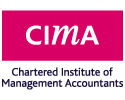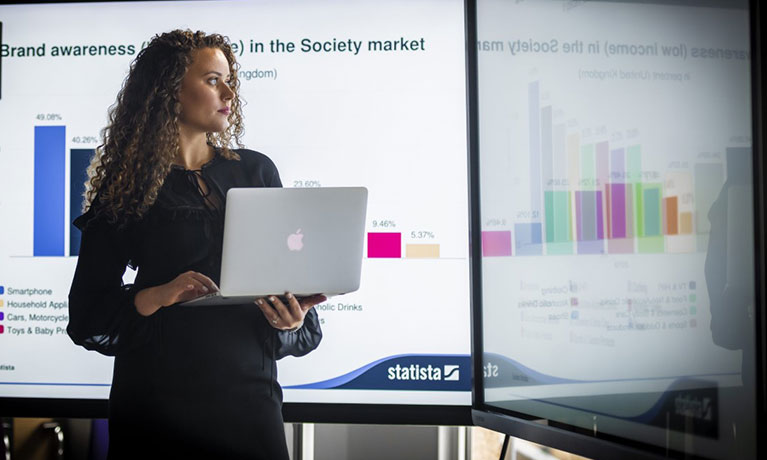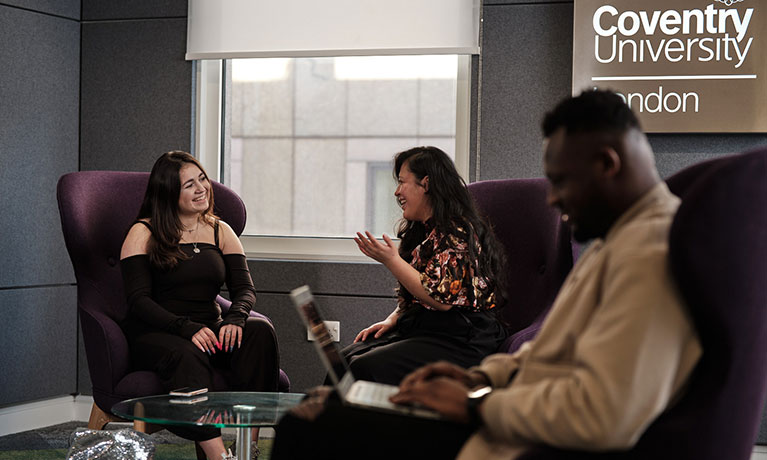Search
International Finance and Accounting BA (Hons)
Study level: Undergraduate
Study an ACCA, CIMA and ICAEW accredited degree course with employability skills at the heart of its modules.
Course features
Year of entry
Location
Coventry University London (City of London)
Study mode
Full-time
Part-time
Sandwich
Duration
3 years full-time
4 years sandwich
Condensed first year available
5 years part-time (UK only)
Course code
NN3L
Start date
January 2026 - condensed
Course overview
This course may appeal to you if you're interested in becoming a chartered accountant, working at a financial organisation or working in the finance department of any business or public-sector body.
The course gives you opportunities to:
- build an understanding of the international finance sector through specialist modules, such as financial reporting, auditing, tax, financial management, business law and financial investment
- develop professional and managerial skills from as early as your first year
- gain exemption from certain ACCA, CIMA and ICAEW exams1
- examine international case studies to gain a global perspective on finance management.
The January start for this course is condensed in Year 1. Please see the ‘How you’ll learn’ section below for more details.
Global ready
An international outlook, with global opportunitiesTeaching excellence
Taught by lecturers who are experts in their fieldEmployability
Career-ready graduates, with the skills to succeedWhy you should study this course
- This highly practical course is designed to make the most of the bustling financial district surrounding the campus. Our lecturers work hard to organise guest lectures and opportunities for networking with employers2.
- You’ll be taught by tutors with superb international experience, who will draw on their research and backgrounds in industry to enhance your learning.
- You will learn how to use the industry-standard software and databases that are available on campus.
- There may be opportunities to complete internships, consultancy projects and simulations2.
If you choose to start this course in January you will study exactly the same course but over a slightly shorter timescale in Year 1. This is ideal if you missed the September start, want to transfer from a different university or course or just need a bit more time to prepare for life at university.
Accreditation and professional recognition
If the accreditation of this course and/or the modules changes, we would seek to notify applicants and students as soon as possible.

Association of Chartered Certified Accountants
This course is accredited1 by Association of Chartered Certified Accountants (ACCA); for the 2025/26 intake.

Chartered Institute of Management Accountants
This course is accredited1 by Chartered Institute of Management Accountants (CIMA); for the 2025/26 intake.

Institute of Chartered Accountants in England and Wales
This course is accredited1 by Institute of Chartered Accountants in England and Wales (ICAEW); for the 2025/26 intake.
Exemptions
Please note that this course offers certain exemptions from professional ACCA, CIMA and ICAEW exams, upon successful completion of the course and may be subject to certain criteria, application, availability, meeting any applicable visa requirements and additional fees. Please visit the relevant websites for further information.
Association of Chartered Certified Accountants (ACCA);
Chartered Institute of Management Accountants (CIMA);
Institute of Chartered Accountants in England and Wales (ICAEW);
What you'll study
We regularly review our course content, to make it relevant and current for the benefit of our students. For these reasons, course modules may be updated.
The course is crafted very well regarding the subjects; you get to learn almost every single aspect of accounting and you are even introduced to law! I feel like almost everything we have been learning is going to be used in the future, and after studying for three years you will definitely feel like you have been learning things, rather than just 'going' to university.
Gabija Dubickaite, International Finance and Accounting BA graduate, quoted in 2021

How you'll learn
This course uses a mixture of asynchronous and synchronous teaching. Asynchronous teaching is where you watch pre-recorded lessons or do different activities to help you understand the content in more depth. Synchronous teaching is your opportunity to join a group of fellow students and, with the help of your lecturers, apply any knowledge you learned from practical exercises.
This course can be offered on a part-time basis. Whilst we would like to give you all the information about our part-time offering here, it is tailored for each course each year depending on the number of part-time applicants. Therefore, the part-time teaching arrangements vary. Request further information about part-time study.
If you choose to start this course in January it will be run as a condensed programme. You’ll start your course in January and finish your first year in August. Upon successful completion of Year 1, you will progress onto Year 2 in September and then continue to start subsequent years of your course in September, completing your degree at the same time as the September starters unless you opt to do a placement year.
Teaching contact hours
Teaching hours
Teaching hours vary each semester, year of study and due to module selection. During your first year you can expect 15-18 teaching hours each week. You will also have the option to attend optional sessions including time with a progress coach or to meet with staff for advice and feedback. As you progress through your studies, teaching hours may reduce.
Guided and independent study
Throughout your studies, you will be expected to spend time in guided and independent study to make up the required study hours per module. You’ll be digging deeper into topics, review what you’ve learned and complete assignments. This can be completed around your personal commitments. As you progress through your studies, you’ll spend more time in independent study.
Online learning
As an innovative university, we use different teaching methods including online tools and emerging technologies. So, some of your teaching hours and assessments may be delivered online.
Assessment
This course will be assessed using a variety of methods which will vary depending upon the module. The Assessment methods may include: formal examinations, coursework, reports, essays, group work and presentations. The sequence of assessments within and across modules, semesters and years allows you to gain the necessary skills to succeed and build on what you have previously learned.
The Coventry University Group assessment strategy ensures that our courses are fairly assessed and allows us to monitor student progression towards achieving the intended learning outcomes.
International experience opportunities
This course is designed to be taught from a global perspective, which is of major importance because economies are interconnected and financial services organisations either trade internationally, or are impacted by what happens in the wider world.
The course offers a range of opportunities for international travel2. You could go on a field trip to visit institutions in another country or take a sandwich year to work or study overseas. You could also arrange an overseas internship in your final term2.
Please note that all international experience opportunities may be subject to additional costs, competitive application, availability, and meeting applicable visa and travel requirements, and are therefore not guaranteed2.
Entry requirements
Typical entry requirements:
Fees and funding
| Student | Full-time | Part-time |
|---|---|---|
| UK, Ireland*, Channel Islands or Isle of Man | £9,535 per year | Request fee information |
| EU | £9,535 per year with EU Support Bursary** £16,800 per year without EU Support Bursary** |
Not available |
| International | £16,800 per year | Not available |
If you choose to study this course with a professional placement2 or study abroad year, you will need to pay a tuition fee3 to cover your academic support throughout your placement year. Students commencing their professional placement in the academic year 2027/28 will pay £1,500 if they are paying UK fees, or £1,800 if they are paying international fees.
For advice and guidance on tuition fees and student loans visit our Undergraduate Finance page and see the university’s Tuition Fee and Refund Terms and Conditions.
The University will charge the tuition fees that are stated in the above table for the first Academic Year of study. The University will review tuition fees each year. For UK (home) students, if Parliament permits an increase in tuition fees, the university may increase fees for each subsequent year of study in line with any such changes. Note that any increase is expected to be in line with inflation.
If you choose to study this course with a professional placement, the University will charge the tuition fees stated above for those on a placement during Academic Year 2027/28. The University will review professional placement tuition fees each year. For UK (home) students, the University may increase fees for each subsequent year of study, but such that it will be no more than 5% above inflation.
For international students, we may increase fees each year, but such increases will be no more than 5% above inflation. If you defer your course start date or have to extend your studies beyond the normal duration of the course (e.g. to repeat a year or resit examinations) the University reserves the right to charge you fees at a higher rate and/or in accordance with any legislative changes during the additional period of study.
We offer a range of International scholarships to students all over the world. For more information, visit our International Scholarships page.
Tuition fees cover the cost of your teaching, assessments, facilities and support services. There may be additional costs not covered by this fee such as accommodation and living costs, recommended reading books, stationery, printing and re-assessments should you need them. Find out what's included in your tuition costs.
The following are additional costs not included in the tuition fees:
- Any optional overseas field trips or visits: £400+ per trip.
- Any costs associated with securing, attending or completing a placement (whether in the UK or abroad).
Condensed course – January start date
If you choose to start this course in January please make sure you check the Fees and Finance page for more information. Although starting this course in January does not prohibit you from being eligible for student finance, the way it is paid in your first year differs from those who start their course in September.
If you start the course in January, your tuition fees will be paid in accordance with the university’s Tuition Fees, Refund and Withdrawal Terms and Conditions for January starters and for any further years of study, your fees will be paid in accordance with the terms for September starters.
*Irish student fees
The rights of Irish residents to study in the UK are preserved under the Common Travel Area arrangement. If you are an Irish student and meet the residency criteria, you can study in England, pay the same level of tuition fees as English students and utilise the Tuition Fee Loan.
**EU Support Bursary
Following the UK's exit from the European Union, we are offering financial support to all eligible EU students who wish to study an undergraduate or a postgraduate degree with us full-time. This bursary will be used to offset the cost of your tuition fees to bring them in line with that of UK students. Students studying a degree with a foundation year with us are not eligible for the bursary.
Facilities
We have a range of facilities available to support our students in putting the theories you are taught into practice.
Take a virtual tour of our campus to explore all of the facilities available to you.

Bloomberg Trading Floor
Our Trading Floor has been created to reflect the environment where traders work at the London Stock Exchange. It contains Bloomberg Terminals, which provide access to real-time global financial data, which students learn how to use through teaching and simulated projects.

Standard & Poor Market Intelligence Suite (S&P)
The S&P Suite contains some of the same tools used by Wall Street. Its databases and tools can help you track performance, identify investment ideas, and keep up with industry news and insights.

The Talent Team
Need employability support? Our dedicated Talent Team are on hand to help. They can assist you in applying for work placements, graduate-level jobs and offer skills development workshops. They also organise networking events to introduce you to potential employers and industry contacts.
Facilities are subject to availability. Access to some facilities (including some teaching and learning spaces) may vary from those advertised and/or may have reduced availability or restrictions where the university is following public authority guidance, decisions or orders.
Careers and opportunities
On graduating you should:
- be familiar with problem-solving and decision-making, and should have an understanding of how to balance risk and investment
- be prepared to sit additional ACCA, CIMA and ICAEW exams, if desired (may be subject to certain criteria, application, availability, meeting any applicable visa requirements and additional fees)
- be equipped for a career beyond accounting. The financial acumen, business skills and global outlook you’ll have begun to develop could be a superb foundation for a career in any professional or management role.
On graduating, you should be ready to take the first steps into a high-flying accounting, finance or business career.
You’ll have had the opportunity to gain a wide range of softer skills, such as teamwork and communication, which will be highly transferable across all industries and employers.
Where our graduates work
Graduates of this course have gone on to become chartered accountants and work in big four accounting firms such as PwC, Deloitte and KPMG. We also have alumni working in investment banking and in finance departments in a range of companies, spanning many industries.
Further study
You can choose to continue your studies at Coventry University London with the Professional Accounting MSc or Global Finance MSc.
You may be entitled to an alumni discount on your fees, if you decide to progress from undergraduate to postgraduate study.
How to apply
You may also like

Financial Economics and Banking BSc (Hons)

Global Business Management BA (Hons)





